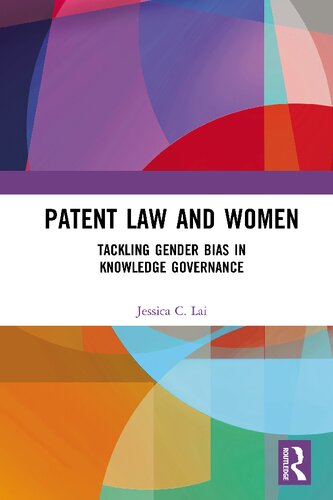

Most ebook files are in PDF format, so you can easily read them using various software such as Foxit Reader or directly on the Google Chrome browser.
Some ebook files are released by publishers in other formats such as .awz, .mobi, .epub, .fb2, etc. You may need to install specific software to read these formats on mobile/PC, such as Calibre.
Please read the tutorial at this link: https://ebookbell.com/faq
We offer FREE conversion to the popular formats you request; however, this may take some time. Therefore, right after payment, please email us, and we will try to provide the service as quickly as possible.
For some exceptional file formats or broken links (if any), please refrain from opening any disputes. Instead, email us first, and we will try to assist within a maximum of 6 hours.
EbookBell Team

0.0
0 reviewsThis book analyses the gendered nature of patent law and the knowledge governance system it supports.
The vast majority of patented inventions are attributed to male inventors. While this has resulted in arguments that there are not enough women working in science, technology, engineering and mathematics, this book maintains that the issue lies with the very nature of patent law and how it governs knowledge. The reason why fewer women patent than men is that patent law and the knowledge governance system it supports are gendered. This book deconstructs patent law to reveal the multiple gendered binaries it embodies, and how these in turn reflect gendered understandings of what constitutes science and an invention, and a scientist and an inventor. Revealing the inherent biases of the patent system, as well as its reliance on an idea of the public domain, the book argues that an egalitarian knowledge governance system must go beyond socialised binaries to better govern knowledge creation, dissemination and maintenance.
This book will appeal to scholars and policymakers in the field of patent law, as well as those in law and other disciplines with interests in law, gender and technology.